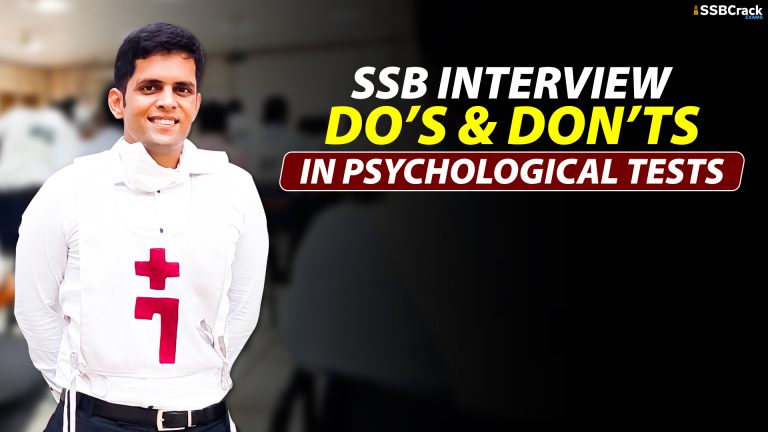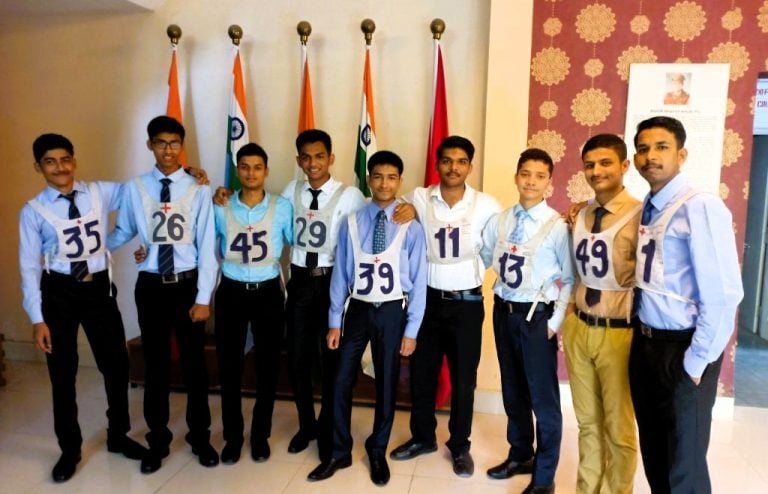The Self-Description (SD) test, also known as self-story writing or self-appraisal, is a crucial psychological assessment tool used in Services Selection Board (SSB) interviews. It serves as a confirmation mechanism for personality traits already identified through other tests like WAT, TAT, and SRT. This article provides a comprehensive guide to mastering the Self-Description test effectively within the typical 10-minute timeframe.
Understanding the Self-Description Test
Every individual possesses both strengths and weaknesses. While most personality traits are visible through normal behavior, some qualities may be concealed from public view yet remain known to oneself. The SSB gives candidates an opportunity to assess themselves honestly by writing about their positive attributes and areas for improvement.
Structure of the Self-Description Test
The SSB follows a unique assessment method where candidates must write paragraphs on the following aspects:
- Parent’s Opinion – How your parents perceive you
- Teacher’s/Employer’s Opinion – Professional assessment of your character
- Friend’s/Colleague’s Opinion – How peers view you
- Self Opinion – Your own assessment of yourself
- Aims/Inspirations/New Qualities – What you aspire to achieve or develop
Effective Strategies for Self-Description
Be Authentic and Honest
- Focus on revealing genuine personality traits rather than creating a false impression
- Collect actual opinions from parents, teachers/employers, and friends/colleagues
- Document your parents’ reactions and viewpoints from various occasions
- Ensure consistency with information provided in your SSB questionnaire
Balance Strengths and Weaknesses
- Acknowledge both virtues and vices, as all humans have positive and negative traits
- Avoid mentioning severe negative qualities; focus on manageable weaknesses
- Distinguish between weaknesses and negative qualities
- Demonstrate awareness of areas for improvement and your plan to address them
Highlight Positive Attributes Effectively
- Mention achievements and good deeds that reflect your character
- Avoid boasting; simple daily activities can effectively showcase your qualities
- Emphasize traits valued in military service: leadership, confidence, social adaptability, punctuality, helpfulness, and positive attitude
Appropriate Weaknesses to Mention
- Communication skills that need improvement
- Limited knowledge of current affairs
- Stage fright or public speaking anxiety
- Minimal participation in extracurricular activities
- English language proficiency that could be enhanced
Preparation and Presentation
- Practice writing your self-description multiple times before the actual test
- Aim to complete the test within 10-12 minutes
- Maintain legible handwriting and develop writing speed
- Focus on personality traits rather than biographical details
- Avoid both overestimation and underestimation of your abilities
Common Pitfalls to Avoid
- Contradictory Statements: Ensure consistency with information provided in other parts of your assessment
- Alarming Habits: Avoid mentioning serious negative behaviors (e.g., daily alcohol consumption, severe social disconnection, uncontrolled temper)
- Biographical Focus: Don’t waste time describing your birthplace, home, or school in detail
- Fabrication: Honesty is crucial; lying can cost you a recommendation
- Perfectionism: You don’t need to present yourself as extraordinary; being genuine is more important
Conclusion
The Self-Description test is an opportunity to demonstrate self-awareness and honesty—two qualities highly valued in military leadership. By following these guidelines, you can create a balanced, authentic self-portrait that enhances your chances of success in the SSB interview process. Remember that the military is looking for real individuals with potential, not perfect candidates. Be sincere, focused, and well-prepared to make the most of your 10-minute window.
Also Read: 7 Tips To Write Genuine Self Description For SSB Interview And Sample Responses







